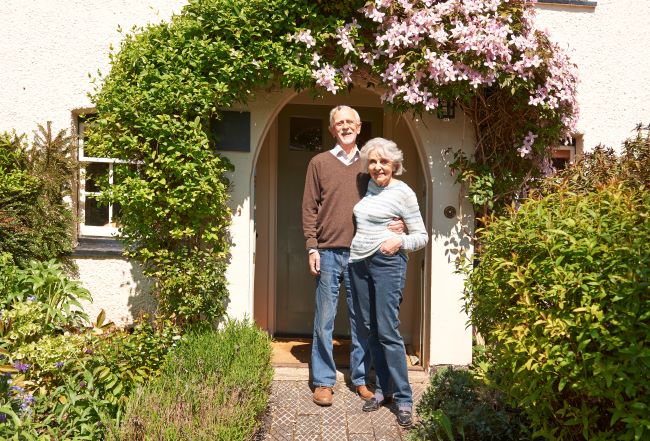Many people who provide for their families during their lifetime hope to be able to provide for them on their death by leaving an inheritance – usually, a property or family home. However, due to illness or frailty or other unforeseen circumstances, thousands of homes are sold every year by councils or families in order to pay for a loved one’s care fees – and the number is increasing every year. In 2018 there were 400,000 people over 65 in care homes in the UK. It is unsurprising therefore that families are ending up with very little, or even nothing, in these circumstances.
The problem has arisen because most couples own property as “Joint Tenants” so that when they die the house automatically passes to their surviving partner, and then to their children following the second death in a Will. If the surviving partner needs long term care, s/he owns the whole house and therefore it could be sold to pay for their care, therefore leaving the children with nothing. A typical situation may be:-
Mr and Mrs Jones have two children. They own a house worth £350,000 and have modest savings. Mr Jones dies and Mrs Jones automatically becomes the sole owner of the property. Mrs Jones’ health suffers and she later goes into a care home costing £850 per week, i.e. £44,200 per year. Her property is sold to pay the fees. She lives in the care home for 8 years before she dies, and as a result the proceeds of sale of the property are all being used to pay the care costs. Mr and Mrs Jones therefore have both died leaving no inheritance to their children.

What can be done to prevent this?
A trust of the house in mirror Wills could help to safeguard at least 50% of the value of the property. If Mr and Mrs Jones had severed their Joint Tenancy to become ‘Tenants in Common’, they would each have owned separate 50% shares of the property. This means that they can then leave this share to whomsoever they wish within their Will, as the share will not automatically pass to the survivor of them, as in the example above. The trust in their Wills allows them to leave the property to their children whilst granting their partner a right to live in the property for their lifetime. The surviving partner would have security of being able to live in the property, and can even sell it and downsize if they needed. As the surviving partner only owns their half share, and not the half share in trust, then if they did need care the deprivation of asset rules do not take effect.
In the above example, when Mrs Jones goes into the care home, only her 50% share of the property could have been used for the fees, because Mr Jones’ share would be held on trust for his children. Therefore, Mr Jones’ 50% share is protected from being used to pay for Mrs Jones’ care and the children would receive half the value of the property, in our example £175,000.
These types of trusts must be written in a Will whilst you are both still alive and in good mental health.

